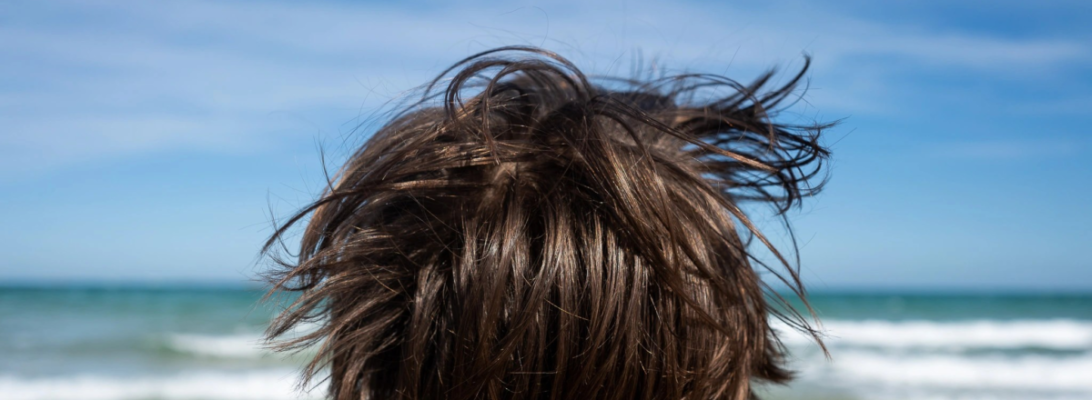Big Fish, Small Fish
I talk on the phone with Giuliano from time to time. He is 39. He spends his time between the residential center and his parents’ home, where he comes for the weekend. He is into electronics and tech stuff, especially cameras and speakers. He likes big fish. He likes to take long walks and ask strangers to take pictures with him. He wears pyjamas that are a couple of sizes smaller.

When one of his acquaintances died a few months ago, Giuliano struggled with anxiety and depression. He was unconsoled. Almost grieving. He told me that he was thinking about the deaths of other people in his life. He couldn’t find peace.
I told him that it will get better. That it’s normal to feel like this.
Telling him this feels at the same time necessary and pointless. I want to help him but I know that telling people it will get better is not going to make them feel better. However, having someone to talk to, someone who listens and cares, can make them feel better.
In a message sent to me not so long after, he includes a couple of fish emojis. I smile. I know that this was a sign of friendship and closeness for him. When I first met him and sat together with his mom to discuss, he showed me his photos of hammerhead sharks, tuna, and other big fish. He said how much he loved them and a bit later he added that that his mom is a big fish and he is a small fish, swimming around her.
Dreaming Up a Project
Giuliano is part of a documentary photo project that I started in January 2023. From the start, I thought of it as a long-term endeavor. It takes time and energy to go beyond scratching the surface, to go back again and again to the participants and try to capture another piece of this amazing caleidoscope that is their life, any life really.
With the photobook published and the exhibition organized in November 2023, it felt as if a milestone had been reached. It felt like something is closing and that, whatever may happen next, it cannot be exactly as before.
For me, new ideas of photo projects start developing long before I take action. I dreamt about Autism Stories at least one year before starting it. A new dream emerged sometimes last year: a project on aging and how people cope with it. I dreamt on it for a while and it was relatively late in the year when, talking to a friend, I realized that I would really like to connect it to my previous work on autism. And that I would like to focus this time on autistic adults.
Shifting Focus: Autism and Adulthood
The little information on autism that is available in the media (including social media) refers almost exclusively to children. There are many good reasons for that, of course. But it is almost as if these kids with autism never grow up. As they approach adulthood, they start disappearing into the fog of indifference. They live their lives quietly, with varying degrees of autonomy.
Some of them spend most of their time in residential facilities. Some others live with their parents. Some have odd jobs while others have a stable employment, although generally with some adjustments to make it more autism-friendly. Some have relationships. Some have kids.
What happens to these people? How do they form and maintain relationships? How do they take on the social roles of friends, romantic partners, colleagues,, parents? What do they struggle with? It’s a whole part of humanity that remains almost invisible. And this has implications on how the rest of humanity treats adults with autism, what resources are allocated to make their life easier, and how easy it is for them to participate in social life and get a job.
This is what the second phase of Autism Stories is about.
Discover more from Autism Stories
Subscribe to get the latest posts to your email.

Hi Florin, somehow I no longer receive updates from this blog. Yesterday I thought about not having seen anything form you in a while. Glad you are continuing with your project in another way. One serious problem that happens in the USA is when autistic children and children with other types of disabilities “age out” of their parents health care system. It used to be 18 and not it’s 26. It’s really tough for parents and I don’t really know what they do. When they are wealthy, they can still provide good care for their “children”, but in some cases they can’t. Then, what happens when the parents die/ I have always asked myself this question and I don’t have an answer. Keep up the good work!
Hello Alessandra and thank you for reaching out. You did not receive anything because I didn’t post much in a pretty long while now. I was busy and anxious and not very happy with what I was posting so at some point I felt like taking a break. And that break became longer and before long I realized I haven’t posted in a few months. You know how it is. Life happens and we’re trying to keep up.
I am actually writing a post about this period, about change, and about searching for better ways of expressing ourselves.
I really hope you’re doing well.
You’re right. It’s precisely this invisibility of autistic adults and the lack of support that made me start a new phase of my photo project focused on post-adolescence.